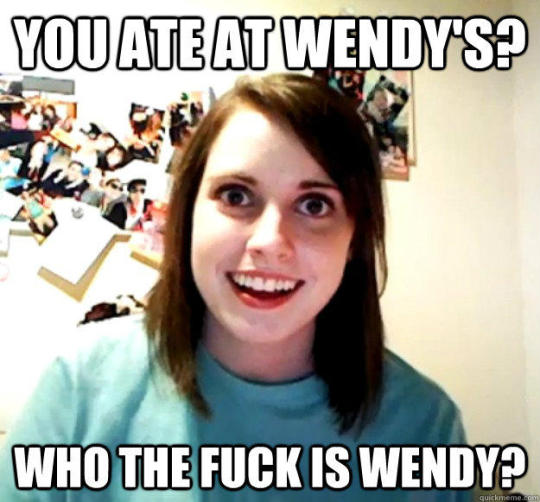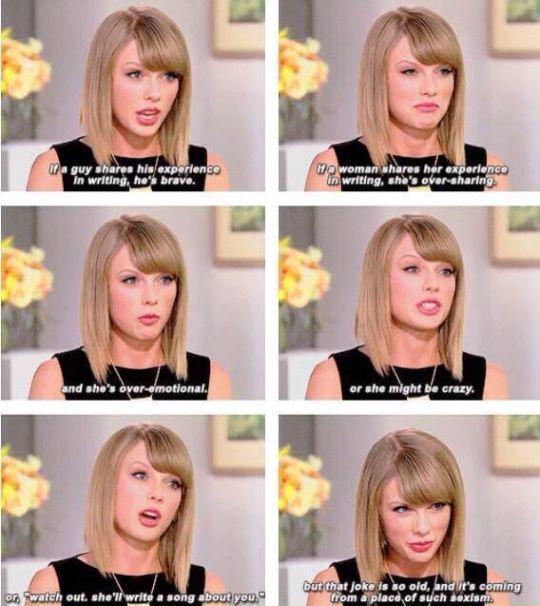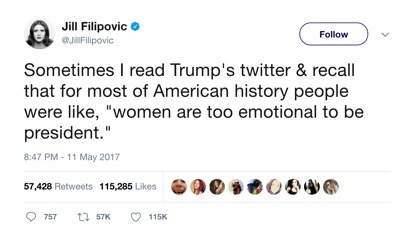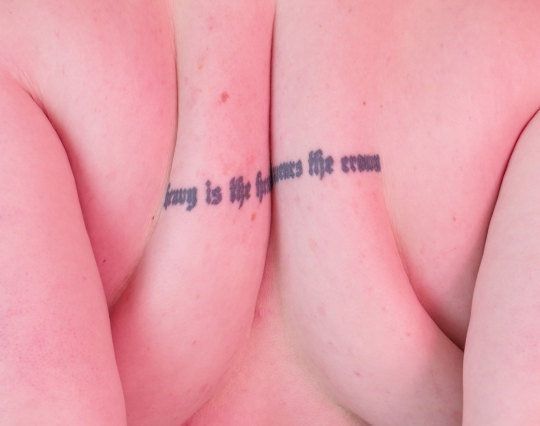#usefulstuff

Author: Sophie Berrill.
Every sexually active and curious person knows the desperate demand for answers from your mates in moments of sexual panic.
“Should I take the morning after pill if I’m already on the pill?”
“Am I meant to get pap smears two years after I turn 18? What if I’ve only had sex with one person?”
“Wait, you’re supposed to wee after sex?”
“Where the fuck do you buy dental dams?”
It is such a relief to have pals you can talk out your sex-related concerns with, but sometimes it’s the clueless leading the clueless (no thanks to the sex education a lot of us received – or didn’t receive). Even when friends are preeetty sure their advice is accurate because they’re reading out verbatim the instructions in their own pill packs, everyone ends their advice with “I don’t know though”, in the event their guidance helps along an unwanted pregnancy.
Enter Victoria’s first sexual and reproductive health helpline for women: 1800 My Options. It launches March 19 and it is here to be your fully informed best friend for when you need an answer to all questions about pregnancy, contraception and sexual health. As well as providing information, the experienced staff who run the hotline can direct callers to services including counselling, contraception, sexual health clinics, abortion providers and more. All of this advice is free and your information confidential.
The Victorian Labor government funded 1800 My Options as part of Victoria’s first-ever Women’s Sexual and Reproductive Health Strategy, to help eliminate barriers impeding women’s access to reproductive and sexual health services. Women’s Health Victoria, an independent, not-for-profit organisation, will run the helpline.
The Executive Director at Women’s Health Victoria, Rita Butera says, “[The helpline] will provide Victorian women with easy access to contraception, pregnancy options and sexual health information, assisting them in navigating an often sensitive and complex service system.”
Although this is an initiative being introduced primarily for women, a Victorian State Government media advisor, Matilda Edwards Jézéquel, has confirmed that men with relevant concerns who want to use the helpline will also receive assistance. The helpline will be equipped for anyone, regardless of their gender or sexual identity, and can refer people to more specific services if necessary.
So if you live in Victoria and have a question, do not hesitate to call 1800 My Options. I certainly know that is where I will be directing my friends when I’m not 100 per cent sure (aka almost always).

In 2012, while trolls virtually punched feminist blogger Anita Sarkeesian till she bled, and parenting website Netmums declared feminism to be dead, the internet gave women another unwanted present: the overly attached girlfriend meme.
If you haven’t seen it, you haven’t missed much, but for the sake of clarity the meme gained traction for its apparently highly relatable depiction of a clingy, stalker, why-you-so-obsessed-wit-me girlfriend.

Remember when memes looked like this? We’ve come a long way.
The thing that made this meme so successful, was that it captured a message we are told so often it has become a cultural truism: women are crazy.
For most people, expressions like “she’s crazy”, “she’s overreacting”, “she’s being hysterical” wouldn’t seem obviously harmful. They can appear particularly forgivable in the high intensity climate of a relationship breakdown when the “crazy ex girlfriend” tag is often thrown around.
But telling someone that their feelings are irrational, fictional or exaggerated is a form of gaslighting.
Gaslighting is a term for a type of psychological abuse where false claims are made to the victim, making them doubt their own memory, perception of events, and very often their sanity. The term takes its name from the 1938 play Gas Light, where a husband attempts to convince his wife and others that she is insane by manipulating small elements of their environment and insisting that she is mistaken, remembering things incorrectly, or delusional when she points out these changes.
Gaslighting often plays out in gendered ways. Saying that women are ‘overreacting’ or ‘crazy’ when they speak tells them that their emotions are not worthy, legitimate or rational.
Furthermore, when men dismiss their ex partners in this way, they abdicate responsibility to reflect on their role in actually creating these emotional responses.
Most people who use the word “crazy” to describe women probably don’t do so with the express intention of causing harm. In fact, the normalization of this behaviour is pretty unsurprising in light of the many messages we are bombarded with that say this behaviour is okay. We are warned to stay away from the “batshit crazy” girls, but told that sex with those same women is the best you can have. We laugh at charts mapping the “Crazy/Hot” scale on How I Met Your Mother; and the “hysterical woman” trope has been reproduced again and again across the entire era of filmic history. When people are pressed for the details behind the breakdown of their intimate relationships, they offer “she went bonkers” as an easy alternative to the real, complicated and often painful reasons for why a relationship ended.
One of the reasons men call the women in their lives crazy is to offload their emotional labour. Emotional labour includes talking through feelings and working through interpersonal issues and is often seen as “women’s work”, despite the fact that it is vital for the sustenance and health of all relationships. Traditional notions of masculinity teach men to disconnect from their feelings, or at the very least that talking about them is a show of weakness, so it is unsurprising that when faced with emotionally-charged interactions with women the default response is to call mad and mentally check out of the situation. But calling a woman ‘crazy’ because you don’t have the emotional literacy to engage with her needs does nothing but place an unfair burden on her to justify feelings that don’t need a justification.
Dismissing your ex partner as crazy also obscures the legitimate reasons for why they feel the way they feel. A recent thread on Reddit gave women who’ve been called “crazy girlfriends” a chance to tell their side of the story. The answers show how frequently irrational it is to call these women ‘crazy’ when really, their male partners have been instrumental in creating the problem. Here are three examples:
“My mum died. You broke up with me at her funeral. I feel like I was a tiny bit justified.”
“My ex strangled me so I broke up with him. Months later I saw him at the mall with his new girlfriend, a spitting image of myself. I walked up, introduced myself, told her he strangled me and to watch out for his telltale emotionally abusive signs and then poured my full cup of Dr. Pepper on him. Lol.”
“In October of last year I had a miscarriage. I cried for the first two nights and on the third one my boyfriend said it was time to start getting over it. Here I am thinking we’re in the same boat and seeing him as my strength, to only hear him say ‘Get over it.’ Gawd, it destroyed me. He said it was because he didn’t want to face it and seeing me like that was a constant reminder but I truly lost so much respect for him after that."
But call them crazy.

Artwork at @marcela.draws
It’s not just partners and ex partners that’s the issue – calling anyone ‘crazy’ is problematic.
Another disturbing aspect of this narrative is how it contributes to the ongoing stigmatization of mental illness. As we’ve discussed, using language in this way feeds a culture that works to prevent people from having constructive emotional interactions during the breakdown of relationships. But the suggestion that people living with a mental illness deserve to be met with contempt and dismissal is also deeply troubling.
Using the word crazy as a slur is hurtful and minimizing. Neuro-divergent people have a hard enough time having their experiences of issues like anxiety, depression and bipolar recognised, validated and cared for. So when you say “fuck my ex, she crazy”, you are inadvertently contributing to a world that says people who are ‘crazy’ are not worth anyone’s time.
The problem is also gendered – women are called ‘crazy’ more than men, even when the emotions and behaviour are exactly the same.
What that means is that sexism plays a crucial role in this phenomena.
Something tells us that if a woman were to release an hour long musical plea for the love of an ex-partner it would go straight in the crazy box, but somehow Robin Thicke can do it and the world cries “passionate”, “tortuous” and “brazen” – but not crazy. By contrast, when a woman turns her break-up pain and emotional experiences into art, she’s a pscyho.

The ‘crazy’ slur is heard not just in relationship breakdowns but at a broader societal level too.
Labeling women in these ways does not absolve the accuser of their duty to take control of their emotional responsibilities, and it does a great injustice to our societal progress. How are women to be taken seriously when the current President of the United States Donald Trump can say that the former Democratic nominee Hillary Clinton “could actually be crazy” for doing her job to a crowd of 5,000 people? If women are to reach our full potential our legitimate contributions at home, work and in society must stop being met with questions about our sanity.

When you get the urge to call a woman crazy, take a moment to think about what that might be saying about you. Instead of alienating her, try instead to engage with her about the emotions she is expressing. When you do that, you are extending an olive branch that shows her you care enough to understand where she is coming from - and you might find that, in the end, her behaviour isn’t so surprising after all.
Read next: “8 ‘Compliments’ That Perpetuate Size-Shaming” >>>

Photo by Isabella Connelleyand Bethan Mooney
Ella Scott says these so-called compliments actually contribute to the harmful idea that ‘smaller is always better’ when it comes to the size of women’s bodies.
Complimenting a person’s appearance upon greeting them is commonplace. Rather than a simple, “hi, how are you?” we hear “wow, you look great in those jeans,” or, “have you been working out?” Or any other appearance-based compliments. Our social media posts are also draped in comments about size and beauty, with women comparing themselves to one another, and leaving comments questioning their own self-worth in order to praise another.
Unfortunately, these comments reinforce a stereotyped message of beauty, particularly when it comes to size. How often have you heard someone compliment you on how ‘thin’ you are looking? For me it’s every week, despite not actually losing any weight since a few years back. When someone makes a comment like this, when I know I’m the same size as I was when I last saw them, I’m immediately reminded that I don’t fit into society’s perception of beauty.
So-called compliments that are actually fatphobic happen. They happen regularly in our society which is so obsessed with the eternally shrinking woman as somehow aspirational. Fatphobia is real; fat acceptance (and health at every size) is needed instead. It is important that such comments are called out and recognised for what they are so we can move forward and stop marginalising people who do not conform to the conventional standard of beauty. With that said, here are 8 comments that sound like compliments but are actually size-shaming/fatphobic in disguise.
1. Have you lost weight?
No, did you think I needed to? Asking if someone has lost weight implies that you thought there was weight to be lost in the first place.
2. Wow, you’re looking so skinny at the moment!
This reinforces the arbitrary idea that thinness equals beauty. It suggests that the person receiving the ‘compliment’ has not previously or does not currently fit this mould.
3. You’re looking so healthy lately, have you been working out?
Again, this kind of comment equates health to thinness and therefore beauty. It implies that the receiver of the ‘compliment’ previously looked unhealthy and in need of change. It also assumes that a fat person cannot be healthy.
During an interview with This American Life, feminist writer and fat-positive activist Lindy West brilliantly pointed out how quickly people cling onto ‘health’ as a justification for fat shaming. I use the word fat as a woman who identifies as an ally and active member of the fat positive movement. This movement supports reclaiming the word as a neutral descriptor, not a slur. West then questioned why people aren’t willing to consider a fat person’s mental health when they make this argument.
4. You dress so well for your body type!
What body type is that? Clearly one you wouldn’t be happy with. This kind of compliment works within the framework of ‘the smaller the better’; essentially applauding the receiver for dressing in a way that conforms to this ridiculous concept.
5. It’s great how comfortable you are with your size.
This one seems so obvious, but I hear it all the time. You are essentially telling the person that you could never be comfortable with your body if it looked like theirs. But hey, good on them for putting up with it.
6. You look the best you’ve ever looked at the moment!
With this comment, you’re implying that something about the person hasn’t looked good in the past, and suggesting that they are looking ‘good’ based on society’s standard of beauty.
7. You could be a plus size model!
What classifies a plus size model? I won’t go into the problematic nature of body labeling in the modeling industry, but this kind of compliment is so vague in its meaning and can be so harmful because you don’t know how it will be received.
8. You’re so lucky to have big boobs that are proportional to your body!
People often seem to comment on boob size in relation to weight as if that somehow makes it ok. Saying someone has large breasts, but that it’s ok because they are proportional to the person’s body, is most certainly not a compliment! You’re basically suggesting that fatness is more ‘acceptable’ if the person has large breasts. How do you think that would make fat women with small breasts feel?
There you have it, 8 size-shaming/fatphobic comments that sound like compliments, but in my experience are almost guaranteed to make a fat woman feel pretty low.
To avoid causing offence entirely, try not to make any comment at all. Complimenting someone as a greeting is not obligatory. It may have become a social norm, but it doesn’t need to be. By playing into this ‘complimenting culture’ we are reducing people to nothing but our external features, while all of our amazing attributes outside of beauty are essentially erased.
So let’s stop making other women feel that their appearance determines their self worth and instead empower one another to appreciate what wonderful human beings we are, inside and out.
Read next: “How to tame your pubes - from someone who’s made every mistake in the book” >>>
